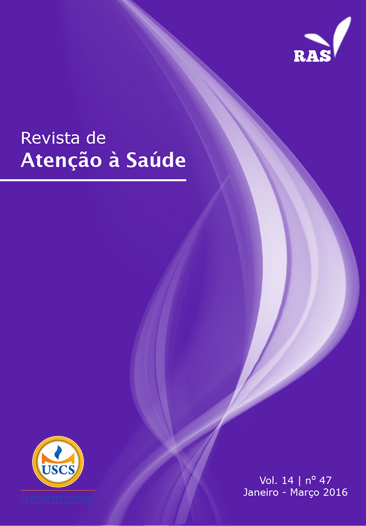Family relationships of women on hemodialysis
DOI:
https://doi.org/10.13037/ras.vol14n47.3283Keywords:
Chronic renal insufficiency, Women, Family, NursingAbstract
may generate anguish and fear of the unknown. The person with chronic kidney disease depends of care,and the family is characterized as a fundamental element in the process of meeting the patient’s needs;however, the emotions in family relationships can be considered positive or negative, since the complexityof each family sets the differences and consistencies of each person. Objective: To know the family relationshipsof women on hemodialysis in the context of chronic kidney disease. Materials and Methods:A qualitative, exploratory, and descriptive study, carried out in 2012 in a nephrology service. Participantswere six women on hemodialysis who answered open and closed questions and had their family genogramconstructed by an instrument. For the analysis, exhaustive reading of data, coding and aggregation to corethemes was performed. Results: The core themes involved the negative and positive family relationshipsexperienced by women on hemodialysis. In negative family relationships, difficulties in paying attention,offering support, and understanding the demands of care generated by hemodialysis were observed, withconflict and neglect in some cases. In positive family relationships, there was support, understanding andcare according to the needs. Conclusions: Negative or positive family relationships of women with kidneydisease on hemodialysis may be linked with existing interpersonal relationships. Thus, knowing the familyrelationships of women on hemodialysis can promote appropriate intervention in aspects of family life.Downloads
Downloads
Published
2016-02-16
Issue
Section
ARTIGOS ORIGINAIS
License
Policy Proposal for Journals offering Free Delayed Access
Authors who publish in this magazine agree to the following terms:
- Authors maintain the copyright and grant the journal the right to the first publication, with the work simultaneously licensed under a Creative Commons Attribution License after publication, allowing the sharing of the work with recognition of the authorship of the work and initial publication in this journal.
- Authors are authorized to assume additional contracts separately, for non-exclusive distribution of the version of the work published in this magazine (eg, publishing in institutional repository or as a book chapter), with the acknowledgment of the authorship and initial publication in this journal.
- Authors are allowed and encouraged to publish and distribute their work online (eg in institutional repositories or on their personal page) at any point before or during the editorial process, as this can generate productive changes, as well as increase impact and citation of the published work (See The Effect of Open Access).









